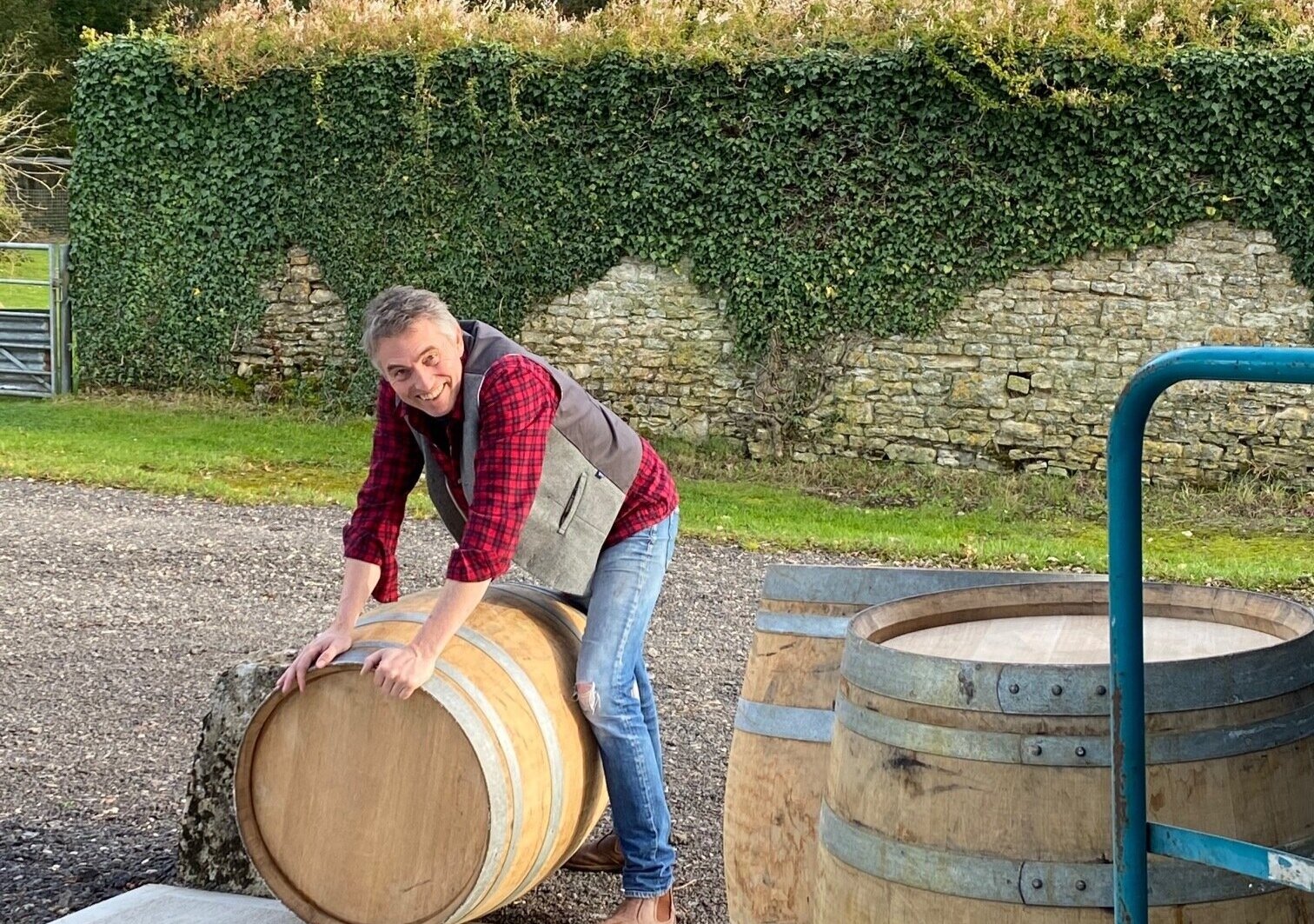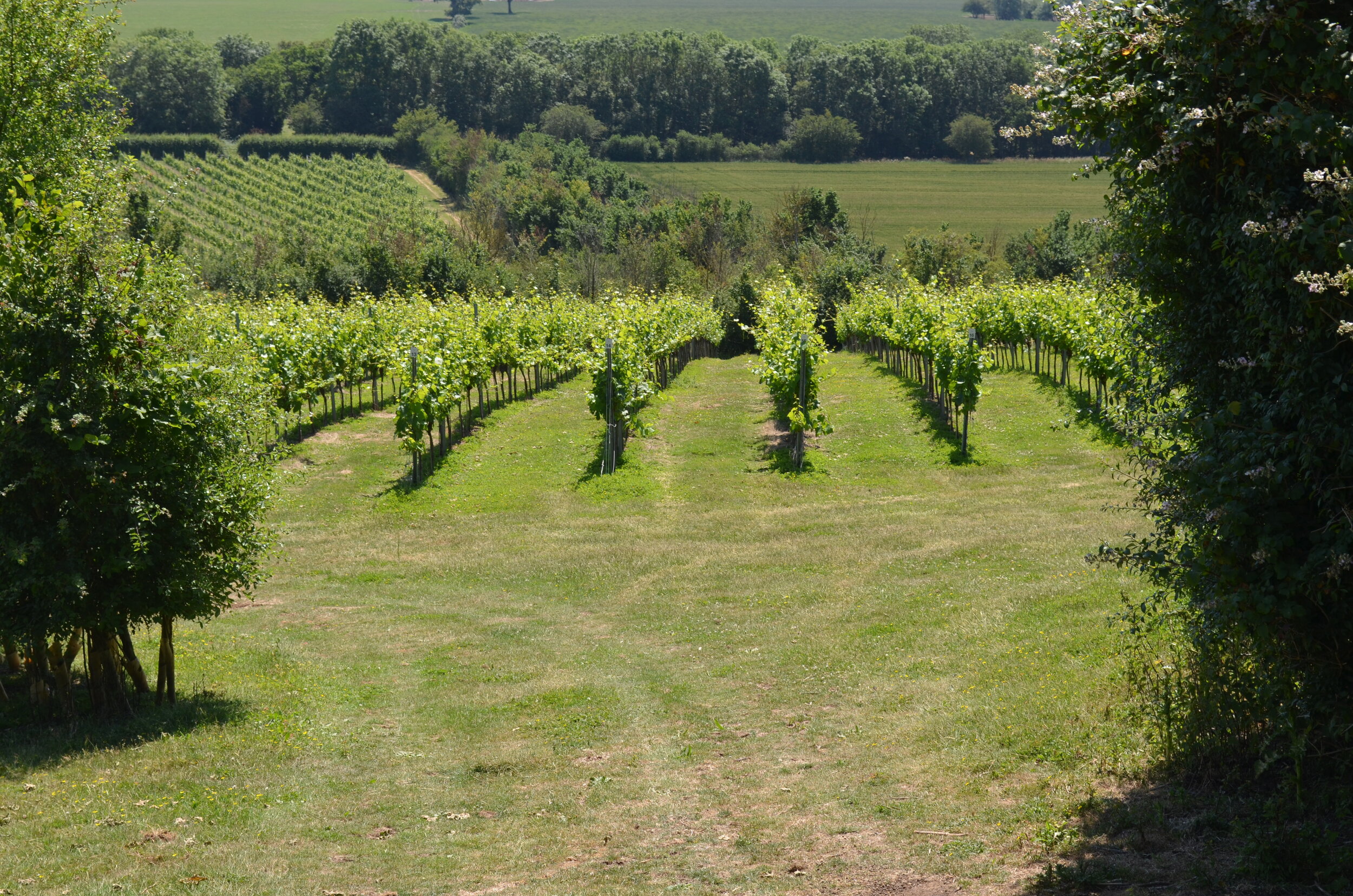
Our Story
We make small batches of beautiful still wines from exquisite English grapes, selecting techniques and vessels best suited to crafting each wine’s distinctive style.
Freedom of the Press is an urban winery on a hill in the Cotswolds. “That makes no sense” you might reasonably say. The original plan was to establish an ‘urban winery’ in Oxford with no vineyards of our own, buying the best grapes from across the country. We would operate more like an in-town micro brewery or boutique distillery than what most people think of as a vineyard. So that was the plan - we had a venue selected and everything. That was early Spring 2020. but Covid took over and the Oxford venue fell through. But just as it looked like it was curtains for the project we found a new home, a unit on a beautiful arable farm above Minster Lovell in the Cotswolds, 15 miles from Oxford. It couldn’t be more perfect. Come and see for yourself - visit us as part of a trip to this most gorgeous part of England.
A winery without vines is nothing new or unusual. It acknowledges that there are two very different processes in wine production, each requiring different skills and facilities. Grapes have to be tended, grown, nurtured and harvested in the best possible sites. They then have to be transformed into wine: specific equipment and processes have an impact on the final outcome, and while the objective is to let the fruit speak for itself the skills of the winemaker help hone that voice - choosing the vessels, the pressing cycles, the temperatures and other transformative practices. And of course it means that a wine can be made locally, even in parts of the country that are not ideally suited to growing the best vines.

We have developed relationships with a few growers in Essex who are relentless in their pursuit of grapey perfection. It is a county that is being acknowledged as having the best sites for growing grapes for still wines in the country. In a typical year Essex is drier and sunnier than anywhere else, meaning the grapes become riper. Furthermore the London clay is proving to be a perfect soil to develop powerful complex flavours in cool-climate still wines.
Our winery is very small (have I said) which enables us to handle the grapes and the juice gently. Often fruit is moved by hand or gravity. We’ve also been able to invest in a top quality press and destemmer. A range of vessels are at our disposal for fermentation and ageing: earthenware jars, a beautiful concrete egg, French oak barrels from the best tonneliers (Cavin and Louis Latour) - these barrels have been used once or twice in Burgundy, so the oak is softened. We also have a few state of the art steel tanks. This means we have a range of options for fermentation and maturation - each slightly different - shaping the wine to match the qualities of the fruit, and our ambitions for the style.
It is often said that the best wines are made in marginal climates, on the edge of viability. England is one such area, and the wines produced have taut structures, evocative and ephemeral perfumes and flavours of citrus, meadows, orchards and mineral. In the winery we aim to develop and accentuate these qualities, making structured wines that balance clean fruit with a certain mineral linearity. But don’t under-estimate the power, texture and persistence the ripe Essex fruit can also bring to play. Some of the wines are aged in oak, or sit on their lees, or go through malolactic conversion. These natural processes can enhance the complexity and richness of the bigger wines, particularly the Chardonnay, while still retaining the cool-climate precision.
We’re delighted to say that the wines have been extremely well received by such respected wine writers as Jancis Robinson and Jamie Goode.
Read more about this in the blog posts.




